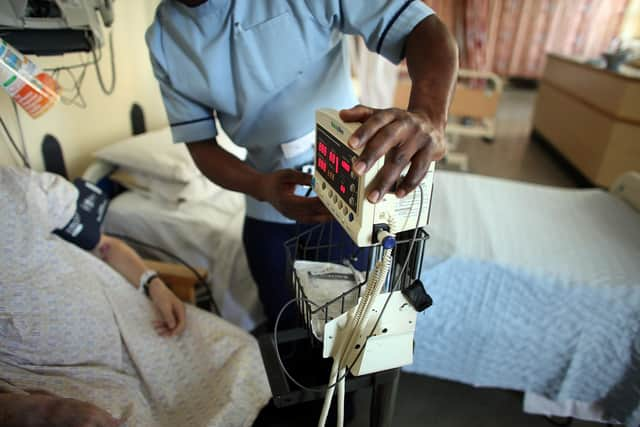Racism, bullying and harassment are still serious problems in NHS – Dr Sajid Farid
The culture within Scotland’s NHS is an area that still requires much attention, with bullying and harassment a pressing issue. Our health service is an environment where individuals work closely together in extremely high-pressure situations – it is intense, and sometimes this can foster an atmosphere where bullying, harassment and racism can, and does, occur. It is never acceptable. There is never an excuse for behaviour of this sort.
The workforce is becoming more diverse, and policies around dignity at work should reflect this diversity and address the specific challenges and needs of ethnic minority employees. We need to hold people accountable and stop blaming people who speak up about dignity at work and inequality, especially those from ethnic backgrounds.
Advertisement
Hide AdAdvertisement
Hide AdRacist incidents reported by NHS staff have increased dramatically in the past five years. I cannot be any clearer when I say that racism of any form is never acceptable, and particularly so in these circumstances, where those on the receiving end are simply going about their jobs caring for the people of Scotland.
These incidents can take various forms: verbal abuse, humiliation, threats, exclusions – and even physical attacks. Healthcare workers, regardless of their experience level, are often the targets of bullying and harassment. What is concerning is that these harmful practices can occur at different levels and within different parts of the healthcare hierarchy.
These incidents can have a severely negative impact on patient care – a hostile environment can hinder effective communication, teamwork and collaboration among healthcare professionals which, of course, can have a detrimental effect on patient safety, which is our number one priority. It can create an atmosphere of fear and uncertainty that can hinder concentration and decision-making. The longer-term impact can be higher levels of absenteeism and employee turnover – sick leave can increase and some may choose to leave their positions, or even the NHS altogether, to escape hostile work environments.
We need to tackle this kind of behaviour as a society. Of course, it is not confined to the NHS and those needing care – but where it does occur in the NHS, we need clear support from employers to make sure it is plain that this will not be tolerated, and the staff who are the victims will require care after the often exceptionally difficult circumstances they have faced.
Addressing these challenges requires a comprehensive approach that includes raising awareness, promoting a culture of psychological safety, establishing clear reporting mechanisms, implementing strong policies and ensuring robust support systems are available. We need to create an environment where individuals feel safe and supported when raising concerns about bullying and harassment.


While there is no doubt that racist incidents remain small in terms of the overall interactions in Scotland’s NHS, they can be incredibly damaging to staff – and frankly, one racist incident is one too many. Everyone, from NHS boards to the Scottish Government, needs to work to end this kind of abhorrent behaviour once and for all. That means taking a clear stance in condemning racist incidents, and educating and informing the public that such attitudes are simply unacceptable – and that any behaviour of this sort will be dealt with promptly, robustly and appropriately.
Dr Sajid Farid is chair of BMA Scotland’s Race Equality Forum
Comments
Want to join the conversation? Please or to comment on this article.